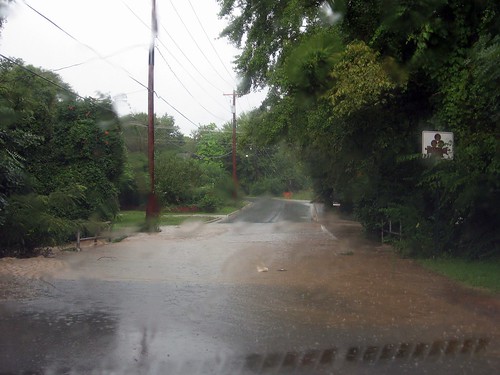To learn more about Fayetteville's effort to strengthen its watershed-protection rules, please attend this afternoon's meeting of the Tree and Landscape Committee in Room 111 of city hall. Alderman Sarah Lewis will be presenting preliminary information on what may become an extremely important set of rules. The meeting begins at 4 p.m. and is free to the public.
The photo below is from the Beaver Lake watershed.
Marty Matlock's words quoted below suggest where priorities need to lie in both Beaver Lake and Tenkiller Lake watersheds.

30-MONTH STUDY: Creeks Meet Regulations
DIRECTOR: PHOSPHORUS NOT A PROBLEM IN OSAGE, SPRING STREAMS
By Bob Caudle
Wednesday, December 9, 2009
LOWELL — Phosphorus is not a problem in Osage Creek and Spring Creek, according to the findings of a 30-month study commissioned by the cities of Rogers and Springdale.
Dr. Marty Matlock, technical director of the Ecological Engineering Group at the University of Arkansas, said more pressing issues threaten the creeks’ well-being than phosphorus.
“We’re bulldozing the system with runoff from urban areas, and we’re worried about phosphorus,” Matlock said Tuesday. “We need a comprehensive plan to work on all the problems.”
Matlock said neither stream had samplings during the two-and-one-half year study that approached a violation of Arkansas water standards.
Oklahoma and Arkansas disagree about regulating the amount of phosphorus discharged from wastewater treatment plants — and the Environmental Protection Agency has just given cities two years to adhere to more stringent regulations on phosphorus.
Overall, Matlock said, the study found no evidence that the streams were being negatively impacted by nutrients, especially phosphorus.
“Phosphorus itself isn’t toxic,” Matlock explained. “It grows algae. Algae takes oxygen and other organisms in the water have to compete with it for the oxygen.”





1 comment:
Just more wasted money with the real needs of real people (and your beloved wildlife) being ignored.
Post a Comment